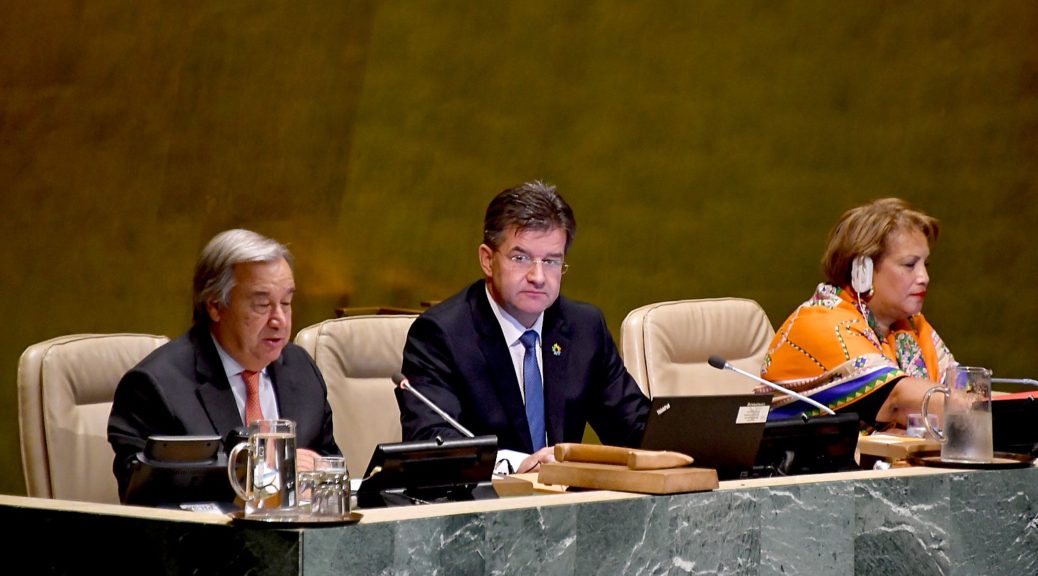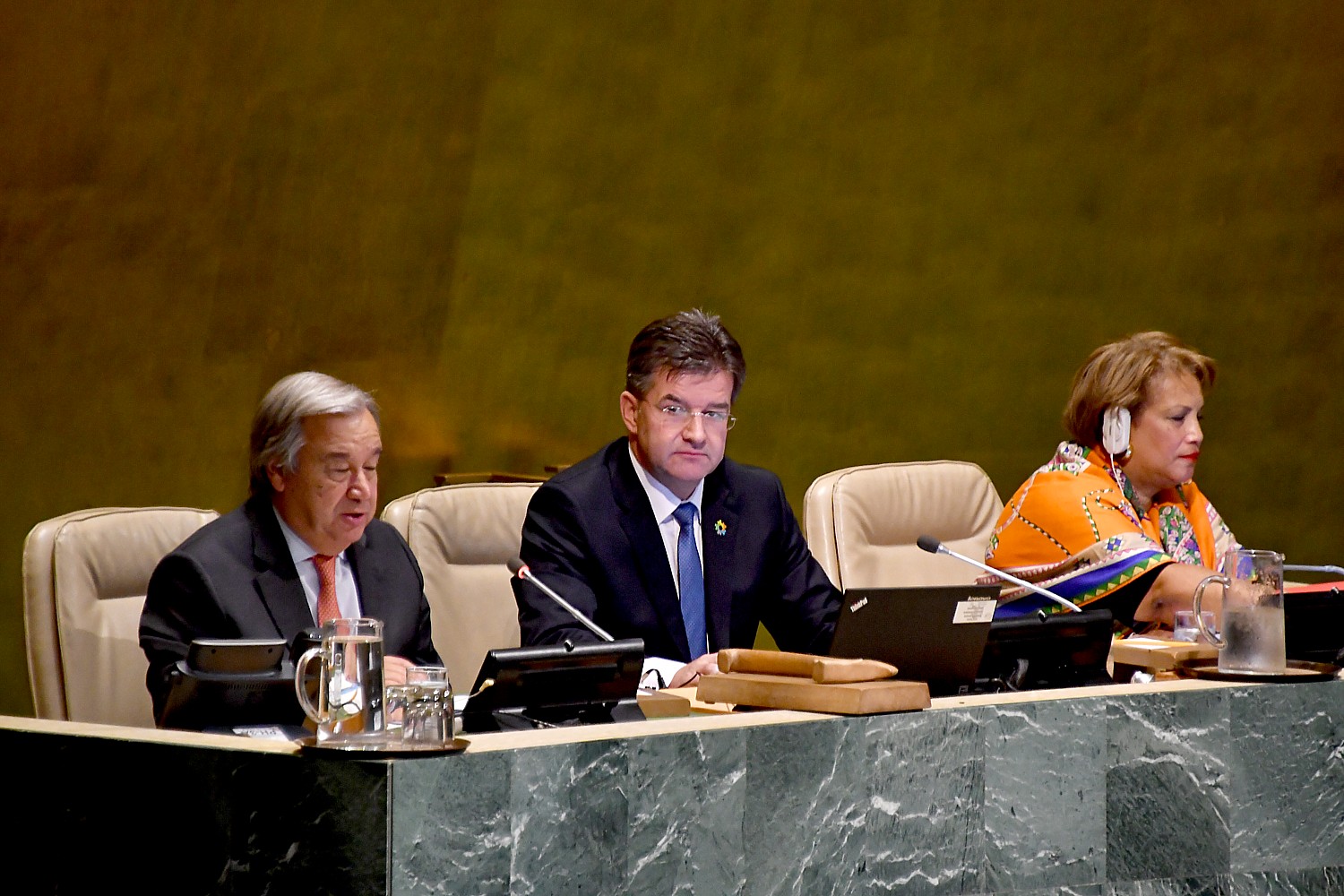
by Karen Rubin, News & Photo Features
The incoming president of the United Nations General Assembly opened the 72nd Session declaring that priorities for the body was to come up with a global framework to address immigration, a treaty banning nuclear weapons, and further implementation of the Paris Climate Agreement.
Miroslav Lajčák, a career diplomat from Slovakia, in his first address as President of the 72nd Session of the United Nations General Assembly, said his tenure would be a “year of firsts” – the negotiation of the first intergovernmental compact on migration and the signing of the first agreement on the elimination of nuclear weapons – and called upon Member States to come together to help people striving for peace and a decent life.
Apart from being a year of “firsts”, he said, it would also a year of follow-up on maintaining the momentum in implementing and financing the Sustainable Development Goals and ensuring continued work on the Paris Agreement on climate change.

“Commitments from yesterday must become actions now,” he told the assembly. He added that the United Nations must be allowed to work “in a way as never before. The UN today is very different from [when it was established] in 1945 – reforming, evolving.
The work of the United Nations could often be complex, he said, but emphasized that the organization was created, first and foremost, for the people.
“The UN was created for people,” Lajčák told the assembled diplomats. “The people who need the UN the most are not sitting in this hall today. They are not involved in the negotiation of resolutions. They do not take the floor at high-level events. It is one of the tasks of the General Assembly to make sure that their voices can still be heard.”
Priorities for UN action, he said, are different “region by region, person to person. If you live where there are rising sea levels, climate change is your priority; if you are in fear of terrorism, counterterrorism is your priority, if you are suffering because of your beliefs, then human rights are your priority. I want to work to represent all of these viewpoints,” he said, saying he would seek “balance.”
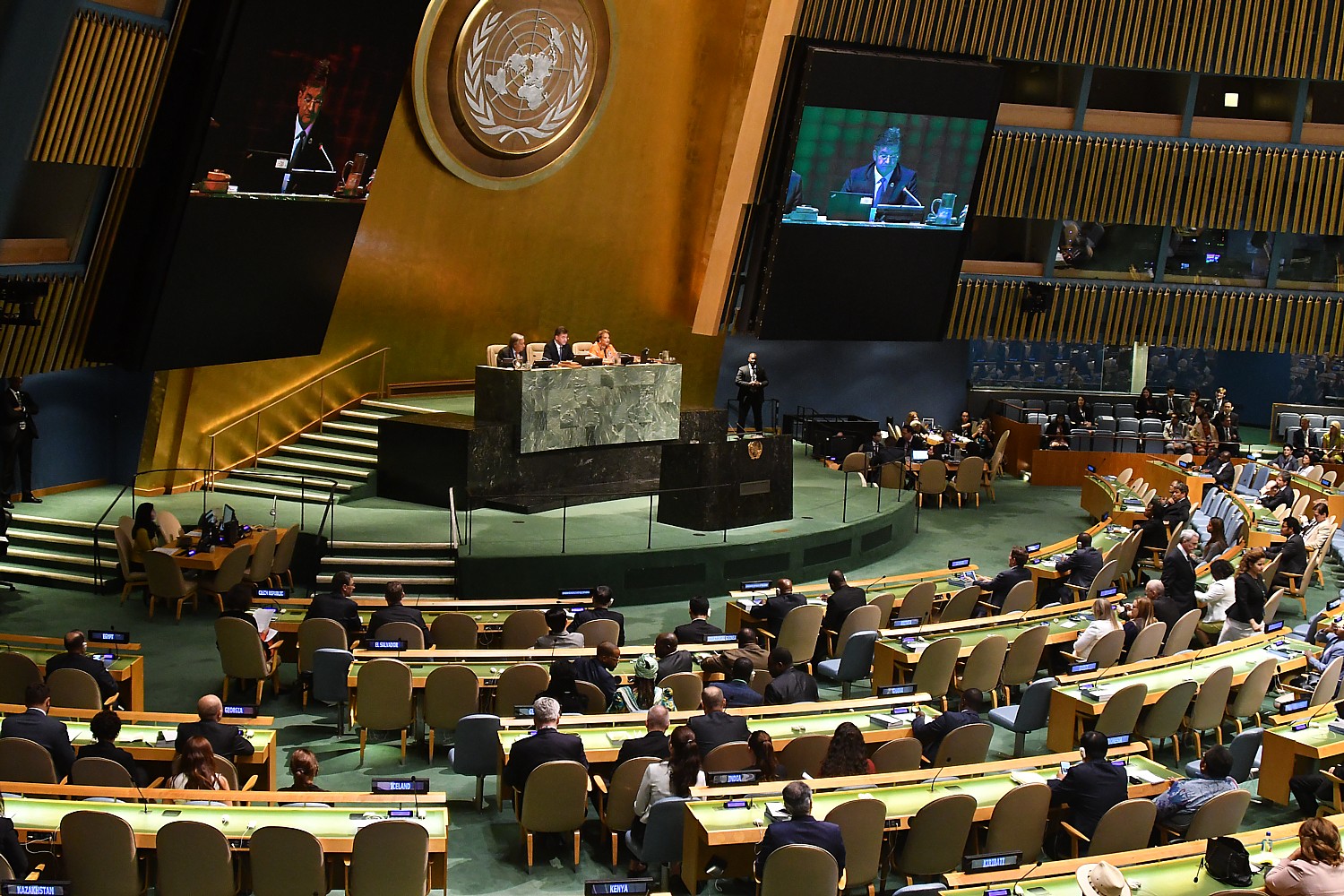
In his opening remarks in which he welcomed the President of the General Assembly, Secretary-General António Guterres highlighted the serious threats facing the world, “from the nuclear peril to global terrorism, from inequality to cybercrime. Hurricanes and floods around the world remind us that extreme weather events are expected to become more frequent and severe, due to climate change,” as well as the challenges posed by “irregular migration.”
“No country can meet these tests alone. But, if we work together, we can chart a safer, more stable course. And that is why the General Assembly meeting is so important,” he stated.
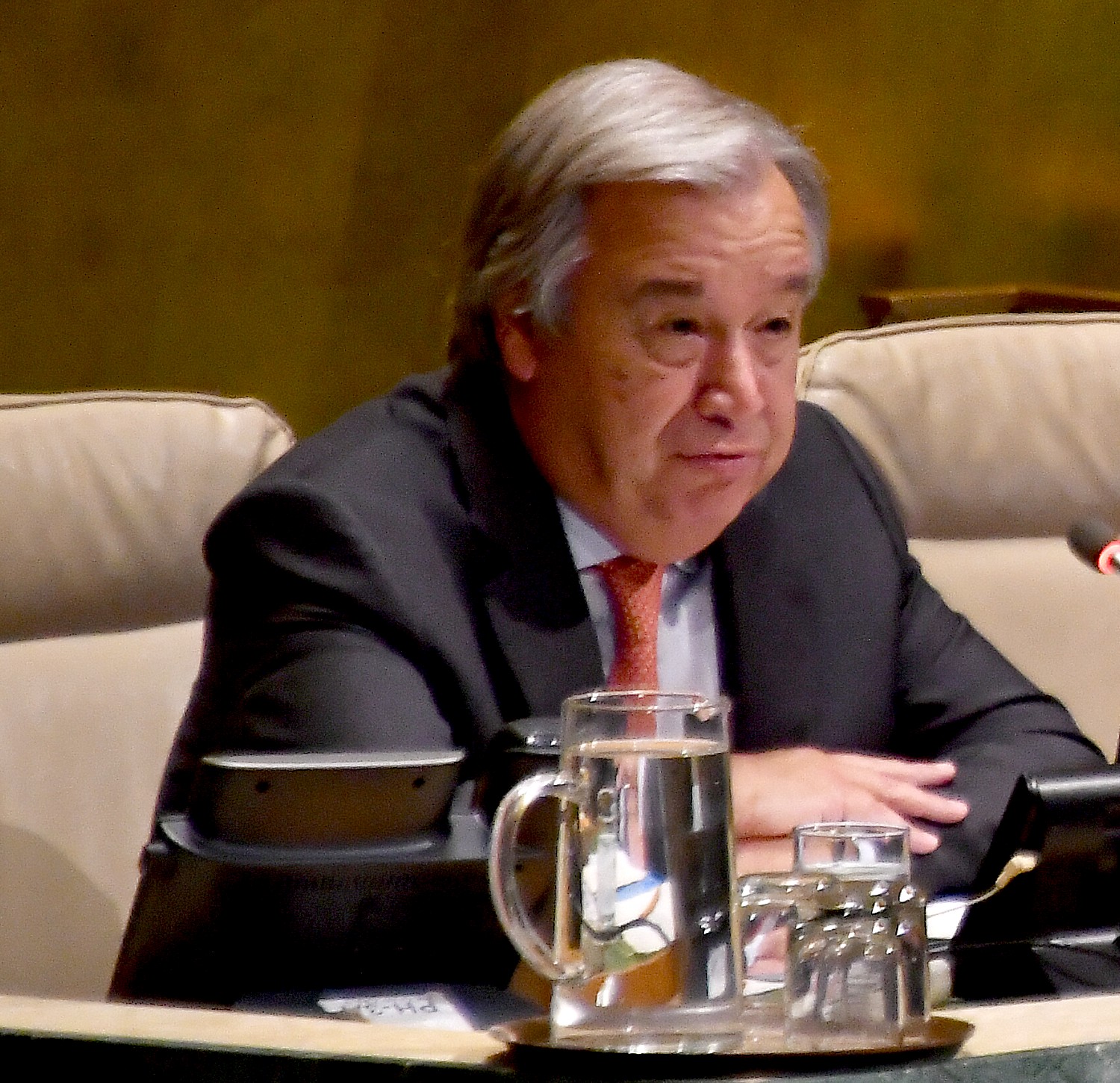
“People around the world are rightly demanding change and looking for governments and institutions to deliver,” he said. “We all agree that the United Nations must do even more to adapt and deliver. That is the aim of the reform proposals that this Assembly will consider.”
He added that one key change within and beyond the UN must be the empowerment of women and girls around the world, and highlighted his own roadmap for achieving gender parity.
He called for more female candidates to fill vacancies within the Organization, because gender parity would improve outcomes at the United Nations.
At a press availability immediately following the official opening of the 72nd Session of the General Assembly, Lajčák answered a skeptical reporter’s question about immigration assertively: “It is not true there is no global framework,” he said. “We are in reactive mode. We need to respond globally – global governance….because in reality, immigration is here to stay.”
And in an earlier interview with UN News, Lajčák said, “The most important thing for me is to understand that what we do here is meant to improve the lives of people on this plane. We are not here because of ourselves and we are not here because of fighting over the text of resolutions. But these resolutions serve concrete purposes. So, let us not forget for a minute that we have to focus on people, on their lives and on their concerns. Second, to be representative, as we are or wish to be, we have to be open, we have to communicate with our partners, with the young generations, with media, with civic activists, and NGOs, and with the business community, so that we are really reflecting the hopes, needs and expectations of the world’s public.”
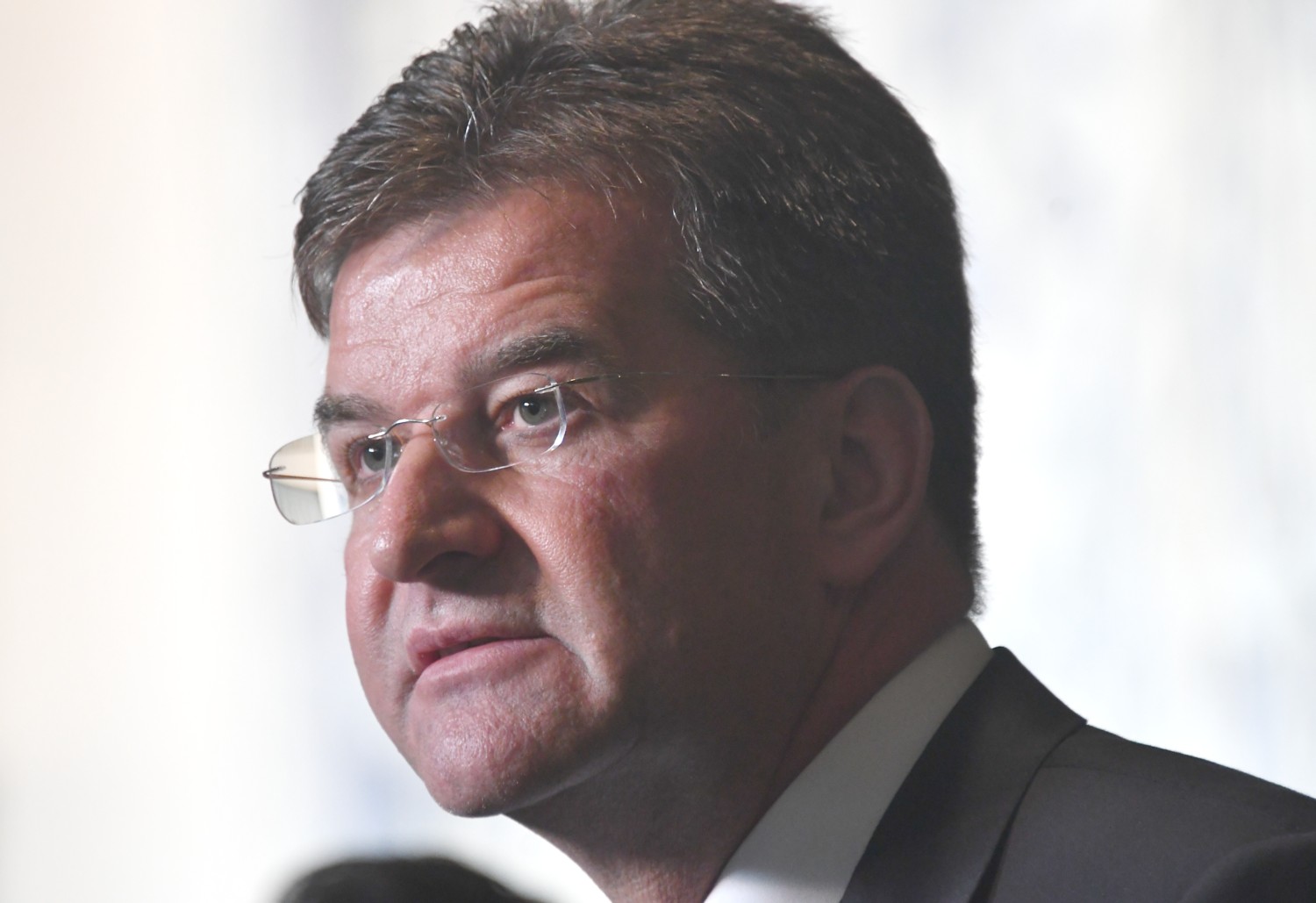
Treaty to Ban Nuclear Weapons
Despite a campaign to eliminate the threat of nuclear weapons such as were used in Hiroshima and Nagasaki going back to the very beginning of the United Nations the General Assembly, the UN this year for the first time is taking up an agreement to prohibit the possession, development, testing, use and threat of use of nuclear weapons.
On July 7, 2017, 122 nations agreed (one voted against) – notably, the nine nations including the United States that already have nuclear weapons boycotted the proceedings. On September 20, a formal treaty will be presented for signature by the nations. . Fifty countries must sign and ratify the treaty for it to enter into force.
“The Treaty on the Prohibition of Nuclear Weapons represents the total repudiation of nuclear deterrence by most of the states that don’t possess or rely on nuclear weapons,” United for Peace and Justice, UFPJ, stated. “But the US and the eight other nuclear-armed states boycotted the negotiations, along with Japan, Australia, South Korea and all but one of the 28 NATO member states (The Netherlands) – all countries under the US nuclear umbrella. In a joint statement following the vote, the US, France and the United Kingdom declared: “We do not intend to sign, ratify or ever become party to [the Treaty].” Meanwhile, nuclear tensions have risen to levels not seen for decades.
“While the Ban Treaty negotiations were taking place in the United Nations, two floors up in the same building, in an emergency meeting of the UN Security Council, the United States was threatening military action against North Korea, in response to its July 4 missile test.
“We must keep both realities – the promise of the Ban Treaty and growing dangers of nuclear war – fully in mind as we develop strategies to accomplish the urgent goal of a world without nuclear weapons.”
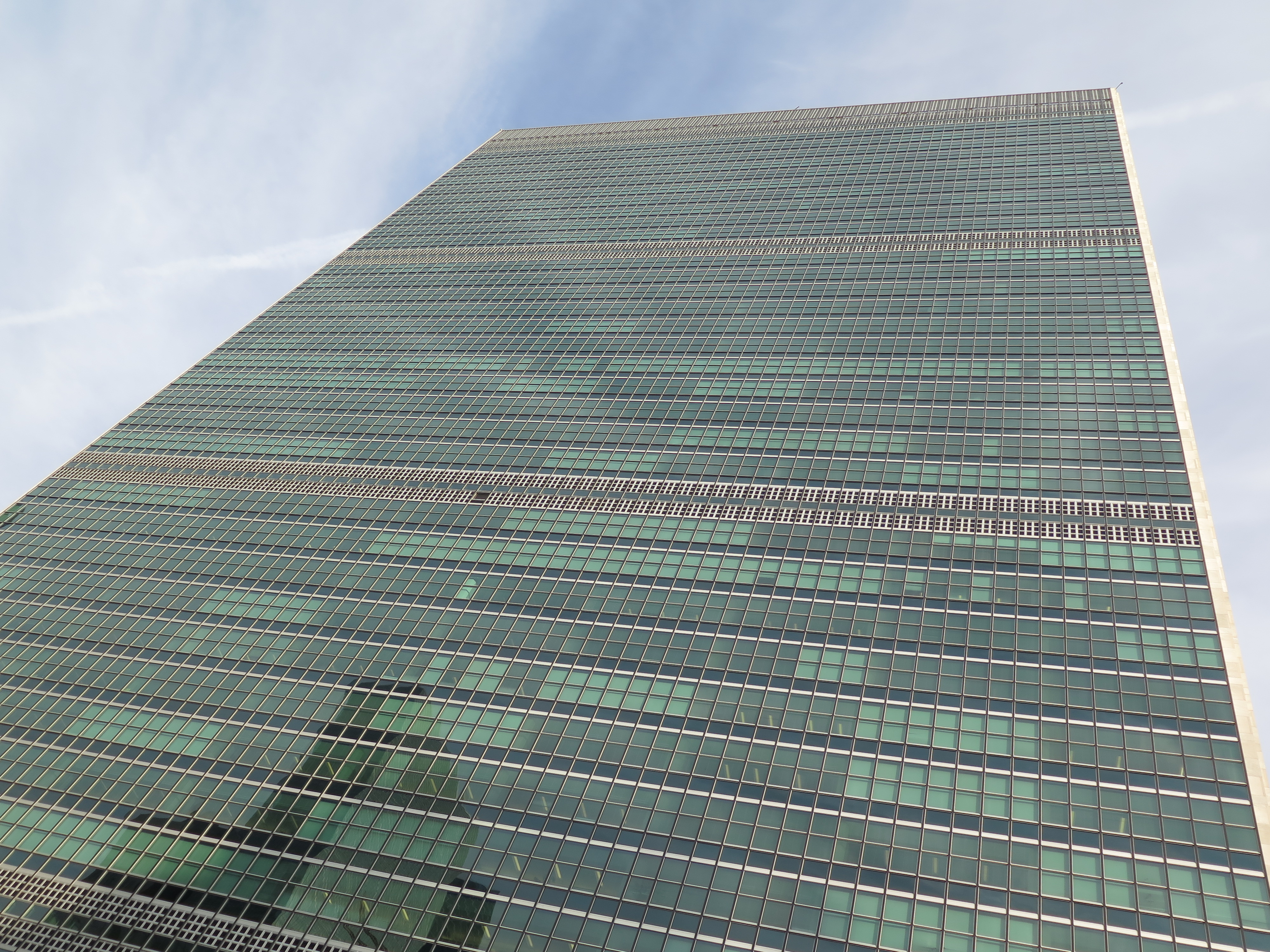
International Day for the Total Elimination of Nuclear Weapons.
Meanwhile, the United Nations has once against declared September 26 an International Day for the Total Elimination of Nuclear Weapons.
“Achieving global nuclear disarmament is one of the oldest goals of the United Nations. It was the subject of the General Assembly’s first resolution in 1946. After general and complete disarmament first came onto the General Assembly’s agenda in 1959, nuclear disarmament has remained the most important and urgent objective of the United Nations in this field. Since 1975, it has been a prominent theme of the review conferences of States parties to the Nuclear Non-Proliferation Treaty. In 1978, the General Assembly’s first Special Session on disarmament reaffirmed that effective measures for nuclear disarmament have the highest priority. And it has been supported by every United Nations Secretary-General,” the UN stated.
“Yet today, some 15,000 nuclear weapons remain. Countries possessing such weapons have well-funded, long-term plans to modernize their nuclear arsenals. More than half of the world’s population still lives in countries that either have such weapons or are members of nuclear alliances. As of 2016, while there have been major reductions in deployed nuclear weapons since the height of the Cold War, not one nuclear warhead has been physically destroyed pursuant to a treaty, bilateral or multilateral, and no nuclear disarmament negotiations are underway. Meanwhile, the doctrine of nuclear deterrence persists as an element in the security policies of all possessor states and their nuclear allies. This is so—despite growing concerns worldwide over the catastrophic humanitarian consequences of the use of even a single nuclear weapon, let alone a regional or global nuclear war.
“These facts provide the foundation for the General Assembly’s designation of 26 September as the International Day for the Total Elimination of Nuclear Weapons. This Day provides an occasion for the world community to reaffirm its commitment to global nuclear disarmament as a high priority. It also provides an opportunity to educate the public—and their leaders—about the real benefits of eliminating such weapons, and the social and economic costs of perpetuating them. Commemorating this Day at the United Nations is especially important, given its universal membership and its long experience in grappling with nuclear disarmament issues. It is the right place to address one of humanity’s greatest challenges, achieving the peace and security of a world without nuclear weapons.”
________
© 2017 News & Photo Features Syndicate, a division of Workstyles, Inc. All rights reserved. For editorial feature and photo information, go to www.news-photos-features.com, email editor@news-photos-features.com. Blogging at www.dailykos.com/blogs/NewsPhotosFeatures. ‘Like’ us on facebook.com/NewsPhotoFeatures, Tweet @KarenBRubin

